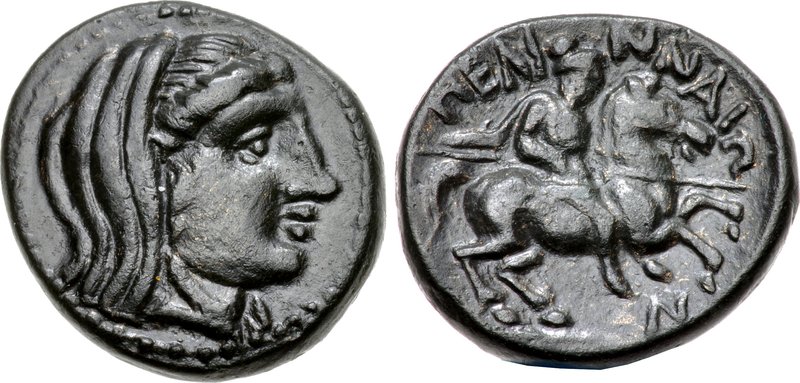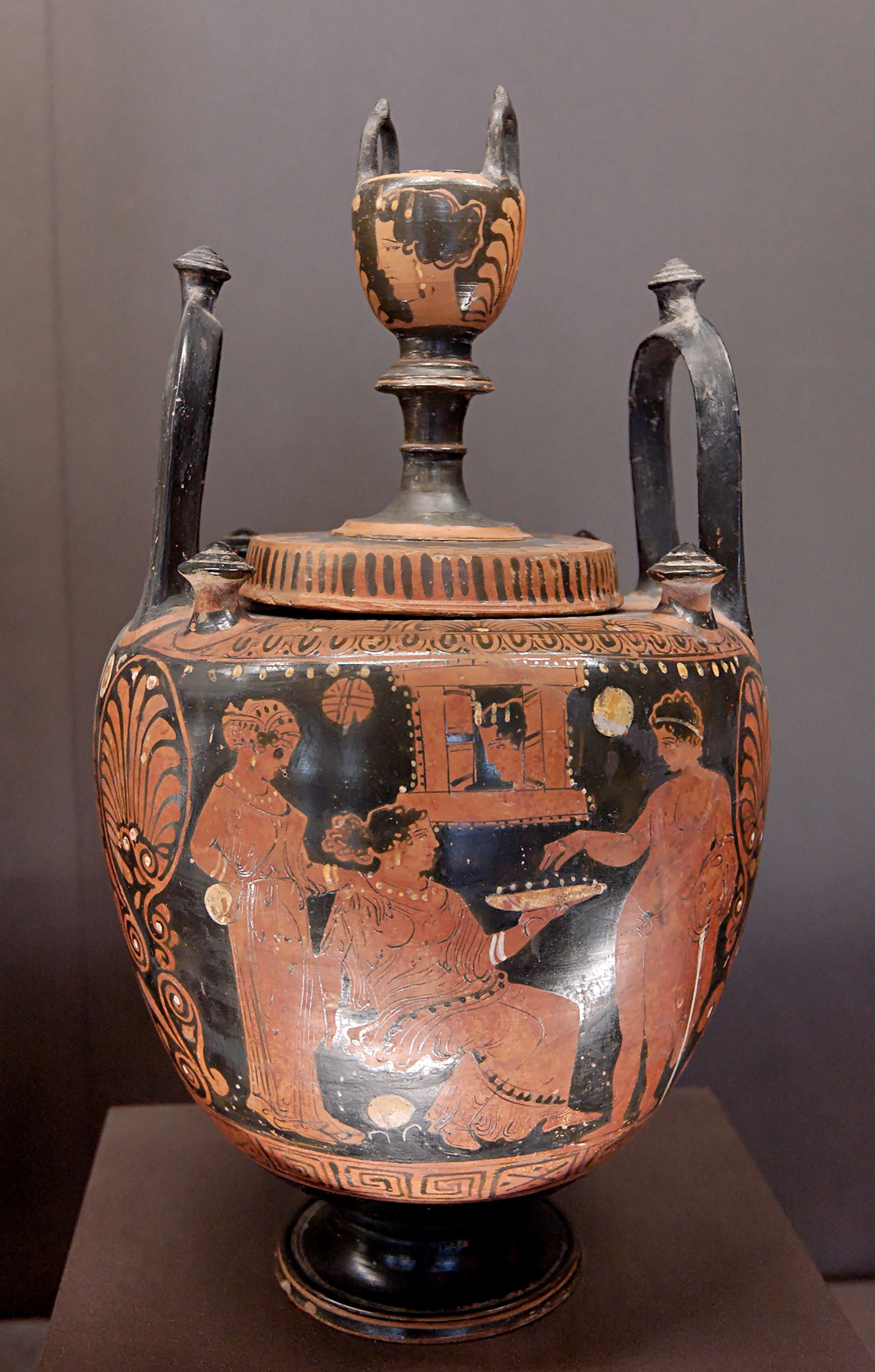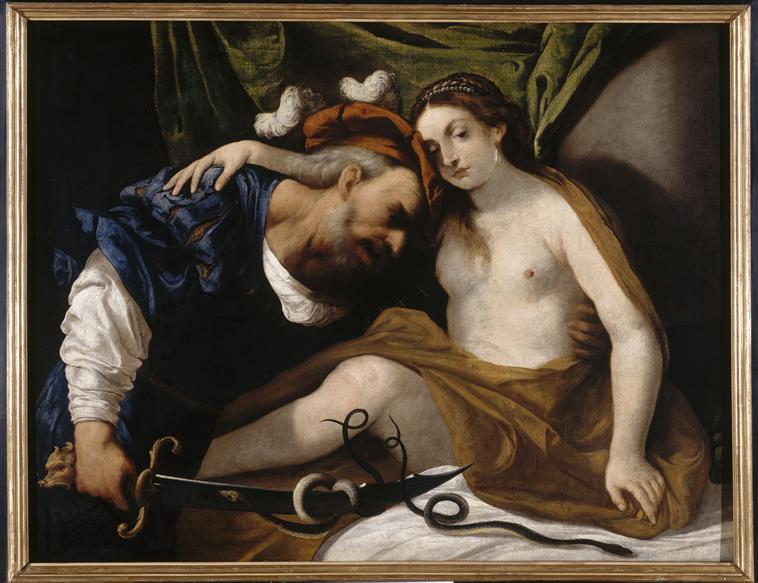|
Rhacius
In Greek mythology, Rhacius ( grc-gre, Ῥάκιος) was the son of Lebes, and the leader of the first Greeks to settle in Caria, and became King of Caria. His court was located at Colophon in Ionia. With his wife Manto, daughter of the seer Tiresias, he was the father of Mopsus Mopsus (; Ancient Greek: Μόψος, ''Mopsos'') was the name of one of two famous seers in Greek mythology; his rival being Calchas. A historical or legendary ''Mopsos'' or ''Mukšuš'' may have been the founder of a house in power at widespread ..., a renowned seer. Kings in Greek mythology {{Greek-myth-stub Ancient Greeks in Caria Greek mythology of Anatolia ... [...More Info...] [...Related Items...] OR: [Wikipedia] [Google] [Baidu] |
Manto (daughter Of Tiresias)
In Greek mythology, Manto (Ancient Greek: Μαντώ) was the daughter of the prophet Tiresias and mother of Mopsus. Tiresias was a Theban oracle who, according to tradition, was changed into a woman after striking a pair of copulating snakes with a rod, and was thereafter a priestess of Hera. Mythology During the War of the Epigoni, a later myth relates, Manto was brought to Delphi as a war prize. Apollo made her his priestess and sent her to Colophon to found an oracle devoted to him. She had a son named Mopsus by Apollo, although by some accounts, the father of Mopsus is Rhacius, whom Manto later married. According to the '' Bibliotheca'', she had two children by Alcmaeon, Amphilochus and Tisiphone. In an early version, Apollo instructed her to marry the first man she saw outside of Delphi (who turned out to be Rhacius). Rhacius then took her to Claros (which, like Colophon, is in western Asia Minor) and there she founded the oracle of Apollo Clarios. When she arrived, ... [...More Info...] [...Related Items...] OR: [Wikipedia] [Google] [Baidu] |
Mopsus
Mopsus (; Ancient Greek: Μόψος, ''Mopsos'') was the name of one of two famous seers in Greek mythology; his rival being Calchas. A historical or legendary ''Mopsos'' or ''Mukšuš'' may have been the founder of a house in power at widespread sites in the coastal plains of Pamphylia and Cilicia (in today's Turkey) during the early Iron Age. Mythological figures * Mopsus, son of Manto either by Rhacius or Apollo. * Mopsus, an Argonaut and son of Ampyx by a nymph. * Mopsus, a Thracian commander who had lived long before the Trojan War. Along with Sipylus the Scythian, this Mopsus had been driven into exile from Thrace by its king Lycurgus. Sometime later, he and Sipylus defeated the Libyan Amazons in a pitched battle, in which their queen Myrine was slain, and the Thracians pursued the surviving Amazons all the way to Libya. Historical person The Christian chronicler Eusebius of Caesarea was as convinced of Mopsus' historicity as his pagan predecessors and contempora ... [...More Info...] [...Related Items...] OR: [Wikipedia] [Google] [Baidu] |
Greek Mythology
A major branch of classical mythology, Greek mythology is the body of myths originally told by the ancient Greeks, and a genre of Ancient Greek folklore. These stories concern the origin and nature of the world, the lives and activities of deities, heroes, and mythological creatures, and the origins and significance of the ancient Greeks' own cult and ritual practices. Modern scholars study the myths to shed light on the religious and political institutions of ancient Greece, and to better understand the nature of myth-making itself. The Greek myths were initially propagated in an oral-poetic tradition most likely by Minoan and Mycenaean singers starting in the 18th century BC; eventually the myths of the heroes of the Trojan War and its aftermath became part of the oral tradition of Homer's epic poems, the '' Iliad'' and the '' Odyssey''. Two poems by Homer's near contemporary Hesiod, the '' Theogony'' and the '' Works and Days'', contain accounts of the genes ... [...More Info...] [...Related Items...] OR: [Wikipedia] [Google] [Baidu] |
Lebes (mythology)
The lebes (Greek 'λέβης', plural ''lebetes'') is a type of ancient Greek cauldron, normally in bronze. It is a deep bowl with a rounded bottom. It was often supported by a sacrificial tripod. In classical times, a foot was attached and it was typically used as a cooking pot. Variants Tripod lebes The tripod lebes is characterized by two round vertical handles and by three strut-supported legs. All were separately cast then riveted to the cauldron. Artefactual evidence indicates the tripod lebes was not used as a mixing bowl, even long after it lost its role as a cooking pot. Lebes gamikos The lebes gamikos (pl. lebetes gamikoi), or ''nuptial lebes'', appears to have been a part of pre-wedding purification ceremonies, and was often made in pottery. It may have stood by the bride's door and was probably used in ritual sprinkling of the bride with water. Lebetes gamikoi stood on variously long or short bases and each typically was painted with a scene of a wedding procession ... [...More Info...] [...Related Items...] OR: [Wikipedia] [Google] [Baidu] |
Greeks
The Greeks or Hellenes (; el, Έλληνες, ''Éllines'' ) are an ethnic group and nation indigenous to the Eastern Mediterranean and the Black Sea regions, namely Greece, Greek Cypriots, Cyprus, Greeks in Albania, Albania, Greeks in Italy, Italy, Greeks in Turkey#History, Turkey, Greeks in Egypt, Egypt, and, to a lesser extent, other countries surrounding the Mediterranean Sea. They also form a significant Greek diaspora, diaspora (), with Greek communities established around the world.. Greek colonies and communities have been historically established on the shores of the Mediterranean Sea and Black Sea, but the Greek people themselves have always been centered on the Aegean Sea, Aegean and Ionian Sea, Ionian seas, where the Greek language has been spoken since the Bronze Age.. Until the early 20th century, Greeks were distributed between the Greek peninsula, the western coast of Asia Minor, the Black Sea coast, Cappadocia in central Anatolia, Egypt, the Balkans, Cyprus, an ... [...More Info...] [...Related Items...] OR: [Wikipedia] [Google] [Baidu] |
Caria
Caria (; from Greek: Καρία, ''Karia''; tr, Karya) was a region of western Anatolia extending along the coast from mid-Ionia (Mycale) south to Lycia and east to Phrygia. The Ionian and Dorian Greeks colonized the west of it and joined the Carian population in forming Greek-dominated states there. Carians were described by Herodotus as being of Minoan descent,''The Histories'', Book I Section 171. while he reports that the Carians themselves maintained that they were Anatolian mainlanders intensely engaged in seafaring and were akin to the Mysians and the Lydians. The Carians spoke Carian, a native Anatolian language closely related to Luwian. Also closely associated with the Carians were the Leleges, which could be an earlier name for Carians. Municipalities of Caria Cramer's detailed catalog of Carian towns in classical Greece is based entirely on ancient sources. The multiple names of towns and geomorphic features, such as bays and headlands, reveal an ethnic layer ... [...More Info...] [...Related Items...] OR: [Wikipedia] [Google] [Baidu] |
Colophon (city)
Colophon (; grc, , }) was an ancient city in Ionia. Founded around the turn of the 1st millennium BC, it was likely one of the oldest of the twelve cities of the Ionian League. It was located between Lebedos (120 stadia to the west) and Ephesus (70 stadia to its south). Its ruins are south of the town Değirmendere in the Menderes district of Izmir Province, Turkey. The city's name comes from the word κολοφών, "summit", (which is also the origin of the bibliographic term " colophon", in the metaphorical sense of a 'crowning touch',) as it was sited along a ridgeline. The term ''colophony'' for rosin comes from the term ''colophonia resina'' ( grc, Κολοφωνία ῥητίνη ''Kolophōnia rhētinē''), resin from the pine trees of Colophon, which was highly valued for increasing friction of the bow hairs of stringed musical instruments. History According to Apollodorus and Proclus, the mythical seer Calchas died at Colophon after the end of the Trojan War. St ... [...More Info...] [...Related Items...] OR: [Wikipedia] [Google] [Baidu] |
Tiresias
In Greek mythology, Tiresias (; grc, Τειρεσίας, Teiresías) was a blind prophet of Apollo in Thebes, famous for clairvoyance and for being transformed into a woman for seven years. He was the son of the shepherd Everes and the nymph Chariclo. Tiresias participated fully in seven generations in Thebes, beginning as advisor to Cadmus himself. Mythology Eighteen allusions to mythic Tiresias, noted by Luc Brisson, fall into three groups: the first recounts Tiresias' sex-change episode and later his encounter with Zeus and Hera; the second group recounts his blinding by Athena; the third, all but lost, seems to have recounted the misadventures of Tiresias. Blindness and gift of prophecy Like other oracles, how Tiresias obtained his information varied: sometimes, he would receive visions; other times he would listen for the songs of birds, or ask for a description of visions and pictures appearing within the smoke of burnt offerings or entrails, and so interpret them ... [...More Info...] [...Related Items...] OR: [Wikipedia] [Google] [Baidu] |
Kings In Greek Mythology
Kings or King's may refer to: *Monarchs: The sovereign heads of states and/or nations, with the male being kings *One of several works known as the "Book of Kings": **The Books of Kings part of the Bible, divided into two parts **The ''Shahnameh'', an 11th-century epic Persian poem **The Morgan Bible, a French medieval picture Bible **The Pararaton, a 16th-century Javanese history of southeast Asia *The plural of any king Business *Kings Family Restaurants, a chain of restaurants in Pennsylvania and Ohio * Kings Food Markets, a chain supermarket in northern New Jersey * King's Favourites, a brand of cigarettes * King's Variety Store, a chain of stores in the USA * King's (defunct discount store), a defunct chain of discount stores in the USA Education * King's College (other), various colleges * King's School (other), various schools * The King's Academy (other), various academies Electoral districts * King's (New Brunswick electoral district) (1 ... [...More Info...] [...Related Items...] OR: [Wikipedia] [Google] [Baidu] |
Ancient Greeks In Caria
Ancient history is a time period from the beginning of writing and recorded human history to as far as late antiquity. The span of recorded history is roughly 5,000 years, beginning with the Sumerian cuneiform script. Ancient history covers all continents inhabited by humans in the period 3000 BCAD 500. The three-age system periodizes ancient history into the Stone Age, the Bronze Age, and the Iron Age, with recorded history generally considered to begin with the Bronze Age. The start and end of the three ages varies between world regions. In many regions the Bronze Age is generally considered to begin a few centuries prior to 3000 BC, while the end of the Iron Age varies from the early first millennium BC in some regions to the late first millennium AD in others. During the time period of ancient history, the world population was already exponentially increasing due to the Neolithic Revolution, which was in full progress. While in 10,000 BC, the world population stood ... [...More Info...] [...Related Items...] OR: [Wikipedia] [Google] [Baidu] |






